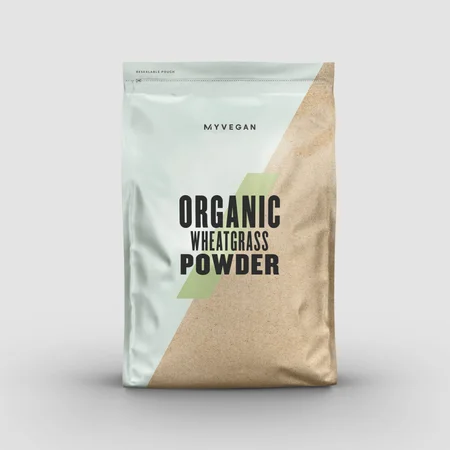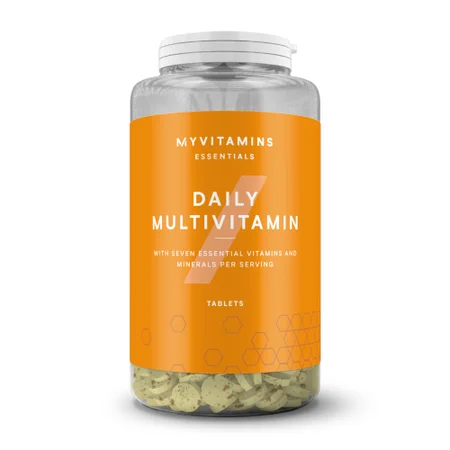
You might have been told to eat your carrots to help you see in the dark, but the benefits of vitamin A go far beyond just eye health. This essential nutrient is a true powerhouse for your body. In this guide, we'll dive into what vitamin A is, why it's so important, and how you can make sure you’re getting enough.
Jump to:
What Is Vitamin A?
Vitamin A is an essential fat-soluble micronutrient that plays a key role in several of the body's most important functions. It is necessary for vision, immunity, cell growth, and other key bodily processes.1
You can get vitamin A from your diet in two primary forms: retinol and carotenoid. Retinol comes from animal sources, while carotenoids are found in plants. The majority of vitamin A we consume comes in the form of retinol.2 Once consumed, the majority of vitamin A is stored in your liver.3
Health Benefits of Vitamin A
1. Vitamin A Is Key for Eyesight
Let’s get back to the old saying about carrots. Aside from being a delicious and versatile vegetable, carrots are rich in vitamin A in the carotenoid form.
The biological name of vitamin A, retinol, is aptly named because it contributes to the formation of retinal pigments in the eye, which are essential for vision.4 Vitamin A also helps maintain the cells that line the conjunctiva and cornea. Together, these make up the clear, thin membrane that covers the eye's surface.5
Summary: The old tale about carrots isn’t just a myth: vitamin A is essential for overall eye health. So, even as adults, we should be eating our carrots!
2. Vitamin A Can Support a Healthy Immune System
Vitamin A has antioxidant properties, much like vitamins C and E.6 It plays a role in immunity by reducing the damage caused by free radicals, like reactive oxygen and nitrogen species.7
It primarily boosts immunity by maintaining the health of epithelial cells.8 These cells line most surfaces in the body and function as the “front line” of defence against invading pathogens.9
Vitamin A also helps boost the immune function of the sticky mucus layer that lines the respiratory tract and intestine, by stimulating the secretion of mucin. This helps remove unwanted particles or pathogens you might have inhaled.9
Research dating back to 1925 first identified that a lack of dietary vitamin A changes the structure of our surface cells and weakens this “front line” defence barrier.10 This can increase the risk of respiratory tract infections, diarrhoea, and other infectious conditions.11
Summary: Vitamin A can help support a healthy immune system and prepare your body’s defence barrier to fight against bacteria and viruses. It also plays a role in gut health, making it an important nutrient to get all year round.
3. Vitamin A Could Reduce Memory Loss
Research indicates that vitamin A has a place in brain health, from the embryonic stage of life through to adulthood. The exact way this works isn't fully understood yet, but here’s what we know so far:
Vitamin A is heavily involved in neuroplasticity, which is the brain's ability to change continuously throughout life. Specifically, it contributes to neuroplasticity related to memory performance.12
As you age, your brain's ability to mould and change declines, which can lead to cognitive impairments, such as memory loss. Scientists think this is due to reduced activity in brain signalling pathways involving retinoid. Luckily, vitamin A supplementation may help reverse this age-related cognitive decline.
When vitamin A gets into the brain and binds to its specific receptor sites, it triggers the production of more genes related to neuroplasticity.13
This gives your brain the tools it needs to change its structure and functions, much like it could when you were younger.
One large-scale study showed that the amount of vitamin A you consume and store is positively correlated with better memory performance in older adults (aged 65-94 years).14 This has led to vitamin A being investigated as a potential way to prevent and improve cognitive diseases.15
Summary: In a nutshell, vitamin A allows the brain to change and rewire as needed, which helps us retain important information. It could also help prevent or reduce cognitive impairment that typically happens as we get older.
4. Vitamin A and Skin Health
Vitamin A is known for its role in supporting the maintenance of normal, healthy skin. It's a key ingredient in many skincare products, where it's often referred to as retinol.
This is why you'll see a small mention of topical retinol in skincare products. The topical application of these products may or may not work for you, as everyone's skin is different. However, supporting your skin from the inside out with a balanced diet and supplements is a great place to start.
Summary: When it comes to skin health, vitamin A is a key player. This is why you’ll often find retinol in topical skincare products, but getting enough vitamin A in your diet and through supplements can help you support normal skin from the inside.
How Much Vitamin A Should I Take Daily?
According to the NHS, the reference nutrient intake for vitamin A varies throughout your lifetime. Adult men need approximately 600 mcg a day, and women need around 500 mcg.
Side effects of Too Much Vitamin A
Don't go overboard with vitamin A: more doesn’t necessarily mean better. There is a tolerable upper intake level of 3,000 mcg per day, as excessive amounts can lead to toxic side effects.16
Since vitamin A is stored in the liver, toxicity can occur from either a single high dose or chronic excessive doses. The most commonly reported side effect is skin irritation and dryness, with other minor effects like headache and nausea being reported less frequently.17
Make sure you’re taking the correct dose of vitamin A and consult your GP if you experience adverse effects.
Food Sources of Vitamin A
Many Western food products are now fortified with vitamin A to help the population meet their dietary requirements. These include breakfast cereals, grains, milk, oils, and condiments. However, these are some sources that are naturally high in vitamin A:
| Source | Retinol content (mcg per 100g) | Daily Value % |
| Beef liver | 9,442 | 1,049% |
| Sweet potato | 1,043 | 116% |
| Goose liver pâté | 1,001 | 111% |
| Carrots (cooked) | 852 | 95% |
| Tuna | 757 | 84% |
| Spinach (raw) | 469 | 52% |
| Goat cheese | 407 | 45% |
| Cantaloupe melon | 169 | 19% |
| Salmon | 149 | 17% |
| Eggs | 149 | 17% |
| Apricot | 96 | 11% |
Vitamin A Supplements
If you're looking for a convenient way to top up your vitamin A intake, supplements are a great option. Here are a couple of our top picks:
1. Vitamin A Softgels
These softgels are a great way to support your overall health and wellbeing. Each one provides an essential fat-soluble vitamin that can be a valuable addition to your diet.
Helps maintain normal vision1 Supports the immune system2 Contributes to the maintenance of normal skin3
2. Retinol Softgels
Our Retinol softgels are an ideal daily supplement if you’re serious about your skincare regime. They contain vitamin A, a key beauty ingredient that helps support normal skin from the inside out.1 They also help to support the immune system.2
- A key beauty ingredient
- An ideal everyday supplement for skincare
Contributes to the maintenance of normal skin1 Supports the immune system2
Take Home Message
Vitamin A is clearly an essential nutrient for overall health throughout your life. Without it, we may struggle to see in the dark, suffer one too many colds, and be even more forgetful. Just be careful of how much you consume, especially through supplements and rich sources like liver, to avoid vitamin A toxicity. So, what’s the key message here? Basically, eat your carrots!

Alice Pearson is a UKVRN Registered Associate Nutritionist and UK Anti‐Doping accredited advisor, having obtained a Bachelor’s of Science in Nutrition and a Master’s of Science in Sport Nutrition. She has a specialist interest in the use of sports supplements for improving health, fitness, and sport performance.
Alice has experience working with both amateur and elite athletes, including providing nutritional support to Tranmere Rovers FC and Newcastle Falcons Rugby Club. Her nutritional guidance is always supported by evidence‐based research, which she keeps up to date through continuing professional development and independent learning.
In her spare time, Alice loves travelling, hitting the gym, and getting stuck into a good book.
Find out more about Alice's story here.
1Tanumihardjo, S.A., Russell, R.M., Stephensen, C.B., et al. (2016). Biomarkers of Nutrition for Development (BOND)—Vitamin A Review. The Journal of Nutrition, 146(9), pp. 1816-1848. doi:10.3945/jn.115.229708
2D’Ambrosio, D.N., Clugston, R.D. & Blaner, W.S. (2011). Vitamin A Metabolism: An Update. Nutrients, 3(1), pp. 63-103. doi.org/10.3390/nu3010063
3Green, M.H. & Green. J.B. (1994) Vitamin A Intake and Status Influence Retinol Balance, Utilization and Dynamics in Rats. The Journal of Nutrition, 124(12), pp. 2477-2485. doi.org/10.1093/jn/124.12.2477
4Visioli, F. & Burgos-Ramos, E. (2016). Selected Micronutrients in Cognitive Decline Prevention and Therapy. Molecular Neurobiology, 53(6), pp. 4083-4093. doi.org/10.1007/s12035-015-9349-1
5Feroze, K.B. & Kaufman, E.J. (2019). Xeropthalmia. StatPearls. Available from: <https://www.ncbi.nlm.nih.gov/books/NBK431094/>
6Dao, D.Q., Ngo, T.C., et al. (2017). Is Vitamin A an Antioxidant or a Pro-oxidant?. The Journal of Physical Chemistry, 121(40), pp. 9348-9357. doi:10.1021/acs.jpcb.7b07065.
7Palace, V.P., Khaper, N., et al. (1999). Antioxidant potentials of vitamin A and carotenoids and their relevance to heart disease. Free Radical Biology and Medicine, 26(6), pp. 746-761. doi:10.1016/s0891-5849(98)00266-4
8Gattu, S., Bang, Y., Pendse, M., et al. (2019). Epithelial retinoic acid receptor β regulates serum amyloid A expression and vitamin A-dependent intestinal immunity. PNAS, 116(22), pp. 10911-10916. doi:10.1073/pnas.1812069116
9McCullough, F.S.W., Northrop-Clewes, C.A., Thurnham, D.I. (1999). The effect of vitamin A on epithelial integrity. Proceedings of the Nutrition Society, 58(2), pp. 289-293. doi.org/10.1017/S0029665199000403
10Wolbach, S.B. & Howe, P.R. (1925). Tissue changes following deprivation of fat-soluble A vitamin. Journal of Experimental Medicine, 42(6), pp. 753-777. doi:10.1084/jem.42.6.753
11Qi, Y.J., Niu, Q.L., et al. (2016). Relationship between deficiencies in vitamin A and E and occurrence of infectious diseases among children. European Review for Medical and Pharmacological Sciences, 20(23), pp. 5009-5012.
12Pallet, V. & Touyarot, K. (2015). Vitamin A and cognitive processes. Nutrition and Aging, 3(1), pp. 21-31. doi:10.3233/NUA-150048
13Lane, M.A. & Bailey, S.J. (2005). Role of retinoid signalling in the adult brain. Progress of Neurobiology, 75(4), pp. 275-293. doi:10.1016/j.pneurobio.2005.03.002
14Perrig, W.J., Perrig, P. & Stähelin, H.B. (1997). The relation between antioxidants and memory performance in the old and very old. Journal of the American Geriatrics Society, 45(6), pp. 718-724. doi:10.1111/j.1532-5415.1997.tb01476.x
15Takasaki, J., Ono, K., et al. (2011). Vitamin A has anti-oligomerization effects on amyloid-β in vitro. Journal of Alzheimer’s Disease, 27(2), pp. 271-280. doi: 10.3233/JAD-2011-110455.
16Institute of Medicine, Food and Nutrition Board Dietary Reference Intakes for vitamin A, vitamin K, arsenic, boron, chromium, copper, iodine, iron, manganese, molybdenum, nickel, silicon, vanadium, and zinc. Washington (DC): National Academies Press; 2001. doi: 10.17226/10026
17Olson, J.M. & Shah, N.A. (2019). Vitamin A Toxicity. StatPearls.









